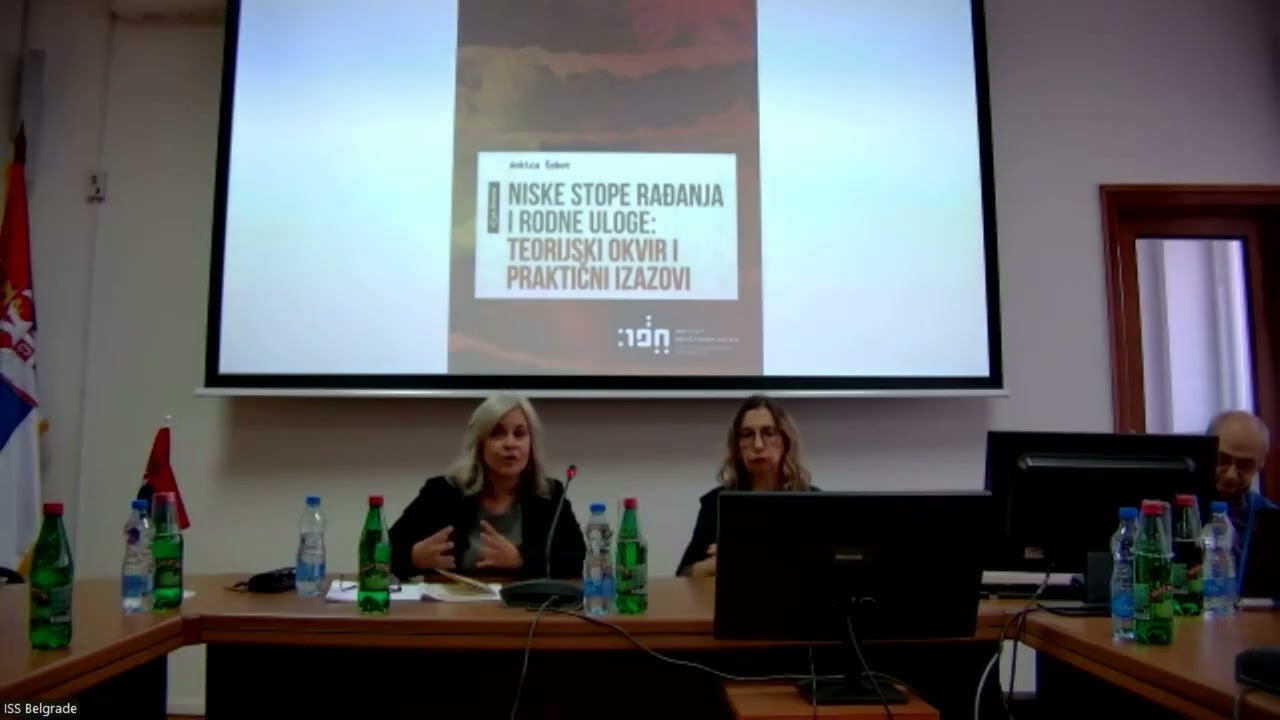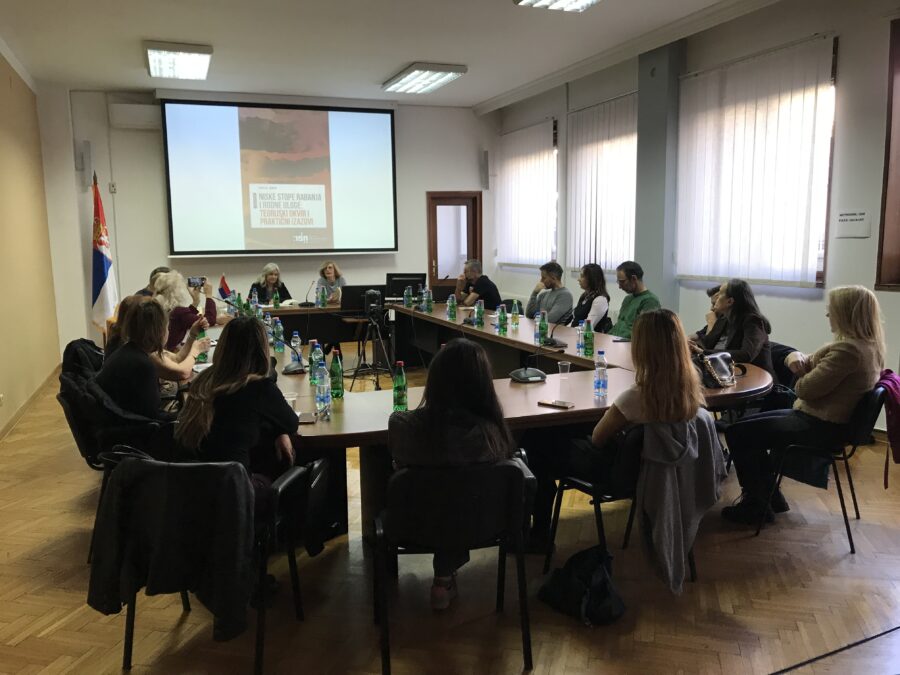Although gender roles are neither the only nor the dominant factor influencing the decision to become a parent, the concept of gender equality represents a necessary framework to be considered when designing pro-natal policies, emphasized Ankica Šobot, author of the book Low Fertility Rates and Gender Roles: Theoretical Framework and Practical Challenges, presented within the cycle “Conversations about Books of the Institute of Social Sciences – Let’s Talk About…”.
Šobot presented the main results of her research, stressing that the book aims to provide a theoretical and analytical framework for understanding the link between gender equality and fertility – in other words, to answer the question of how different gender regimes affect birth rates. She particularly emphasized that public policies should focus on supporting families and facilitating family life, as incentives for childbearing naturally arise from better quality of life, rather than the other way around.
Her presentation was followed by Prof. Dr. Mirjana Bobić from the Faculty of Philosophy, University of Belgrade, who recalled the pioneering work of Marina Blagojević Hudson and her interpretation of gender in the context of the concept of semi-periphery. She pointed out that the decision to become a parent, especially regarding having a second or third child, largely depends on the quality of life of the woman after the first birth: whether she has the support of her partner, an equitable division of responsibilities, the ability to reconcile her career and family life, and maintain economic stability. She also highlighted the strong correlation between the level of democracy and the conditions for realizing personal and professional aspirations, noting that in societies with less developed democracies, patriarchal models and traditional perceptions of motherhood still dominate.
Assoc. Prof. Dr. Dragan Stanojević, also from the Faculty of Philosophy, focused on the value transition of parenthood – from the patriarchal to the gender-egalitarian model. While throughout the 20th century, the marriage model with clearly divided gender roles dominated, contemporary partnerships are based on the need for greater compatibility and understanding of individual needs. This complexity of relationships, he emphasized, affects the fragility of modern partnerships and the decision to have more than one child – which occurs more often among couples who share the same value orientation, whether traditional or egalitarian.
At the same time, he pointed to the phenomenon of the increasing number of people who do not enter partnerships and parenthood – highly educated women from urban areas and less-educated men from rural areas. He also highlighted the increasingly visible transformation of men’s identities: from passive to active fathers who participate equally in the upbringing of children and daily family responsibilities.
In the discussion that followed, numerous questions were raised regarding the way gender issues intersect with economic insecurity, changes in social and cultural norms, as well as the growing need for education and self-realization. It was concluded that a multidisciplinary approach is necessary for a better understanding of gender and parenthood, which would enable public policies to be based on the real needs of modern families.
The cycle “Conversations about Books of the Institute of Social Sciences – Let’s Talk About…” is dedicated to ISS publications. Through conversations with authors, research results are presented, the broader scientific context is explored, and the relevance of the topic for society and public policies is highlighted.
The editor of the cycle is Dr. Irena Ristić.


